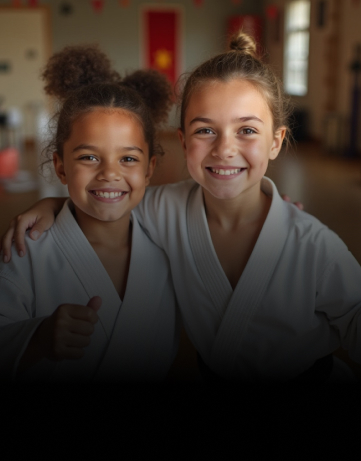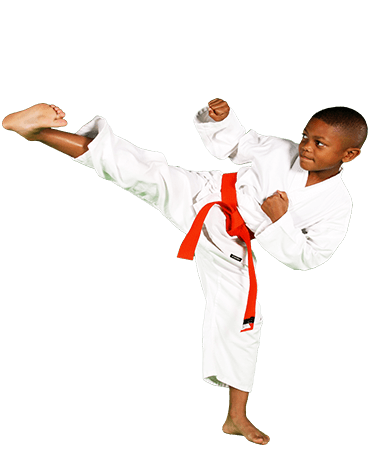How Karate for Children Can Increase Self-confidence and Discipline in Young Martial Artists
Karate for youngsters supplies an unique chance to develop self-confidence and technique in young martial musicians. As they learn new methods and face difficulties, they not just obtain abilities but also develop a strong sense of self-respect. This organized setting urges them to respect the journey of improvement. However exactly how does this training equate into their daily lives? Discover the much deeper links that make karate even more than just a sport.
The Value of Confidence in Youth Advancement
Confidence is a vital structure block in youth advancement. When you nurture your child's self-esteem, you empower them to encounter obstacles, take threats, and reveal themselves easily. Youngsters with confidence are more willing to discover social situations and new tasks, which can cause enduring friendships and valuable experiences.Encouraging your youngster to get out of their comfort zone promotes durability. They discover that failure isn't the end yet instead a tipping stone to success. By celebrating their achievements, regardless of how tiny, you aid them acknowledge their capabilities and worth.In this journey, support and favorable support from you play an important duty. Whether it's with praise or merely being present, your involvement improves their confidence. As they expand, this self-assurance becomes a long-lasting asset, outfitting them to navigate both obstacles and chances with a solid sense of self.
Exactly How Karate Shows Discipline and Emphasis
Karate assists you build technique and focus with its structured training routine. As you practice mindfulness throughout each session, you'll learn to concentrate far better both on and off the mat. And also, establishing and accomplishing objectives in karate enhances your ability to remain committed and alert.
Structured Training Routine
While you take part in karate training, you'll swiftly discover exactly how an organized regimen imparts technique and focus in young professionals. Each course follows a certain layout, including warm-ups, strategy method, and sparring. This consistency instructs you to dedicate and appreciate the procedure to improvement. As you learn methods and kinds, you develop a sense of obligation for your very own progress.The organized environment encourages you to set goals, whether grasping a brand-new belt or developing a kata. You'll locate that staying focused during drills and classes hones your concentration. The self-control you grow in martial arts expands past the dojo, favorably influencing your schoolwork and day-to-day regimens. Each session reinforces the significance of commitment, assisting you become a much more regimented individual.
Mindfulness in Practice
As you practice karate, you'll find that mindfulness becomes a vital part of your training. Each relocation requires your full attention, helping you remain concentrated on the here and now minute. You'll discover to ignore interruptions and concentrate on your breathing, motions, and intents. This increased understanding sharpens your reflexes and enhances your discipline.During sparring or kinds, you'll uncover the relevance of being emotionally present - Karate Salisbury MD. You'll discover how this emphasis not just enhances your technique yet additionally develops your confidence. By exercising mindfulness in martial arts, you cultivate patience and strength, necessary qualities that prolong beyond the dojo. In this means, karate teaches you to harness your mind, aiding you establish a regimented approach to obstacles both on and off the mat

Setting Goal Techniques
Establishing goals in martial arts isn't practically gaining belts; it's a powerful method to grow technique and focus. When you set details, achievable targets, you produce a roadmap for your progression. Rather of just aiming to enhance your kicks, attempt concentrating on understanding a particular method each month. This technique maintains you determined and engaged.Breaking down larger goals into smaller, workable actions aids you track your progression and commemorate small victories in the process. Whether it's improving your position or raising your sparring endurance, every objective enhances your dedication. As you achieve these goals, you'll build confidence in your skills and develop a strong sense of discipline that extends beyond the dojo into everyday life.
Building Resilience Via Martial Arts
Fighting style, specifically martial arts, supplies children an one-of-a-kind possibility to construct strength in an encouraging setting. In courses, they deal with difficulties that push their limits, whether it's mastering a brand-new strategy or competing with a companion. Each obstacle, like a missed kick or a lost suit, comes to be a possibility to discover and grow.As they practice, children find out to accept discomfort and maintain attempting, even when points get hard. They uncover that failure isn't completion; it belongs to the journey. This frame of mind aids them jump back stronger, not just in the dojo, yet in daily life.With each challenge they get over, your kid builds self-confidence in their capability to tackle barriers, sustaining their determination. Via karate, they'll understand that strength isn't practically physical stamina; it has to do with psychological grit and perseverance, encouraging them to deal with whatever life tosses their method.
The Role of Regard in Martial Arts Educating
Respect is a fundamental principle in karate training, cultivating a culture of technique and friendship amongst trainees. When you tip onto the dojo floor, you're not simply learning methods; you're additionally discovering to value your instructors, peers, and the art itself (Karate Salisbury MD). Bowing at the start and end of class isn't just a procedure; it symbolizes your recommendation of others' initiatives and dedication.As you establish mutual respect, you'll discover it enhances your knowing experience. You'll pay attention more attentively to your teacher and gain insights from fellow trainees. This atmosphere urges constructive criticism and assistance, oregon basketball permitting everyone to grow together.Moreover, regard grows self-discipline. Acknowledging the worth of effort and humility assists you stay concentrated on your training. Subsequently, this respect translates site link into your daily life, boosting your communications and relationships outside the dojo. Through karate, you discover that regard is essential for personal growth and neighborhood building
Establishing Objectives and Attaining Success in Martial arts

Social Skills and Teamwork in the Dojo
While training in the dojo, children naturally develop essential social abilities and team effort abilities. As they exercise alongside peers, they find out to interact efficiently, share room, and assistance each other. Each course provides opportunities for partnership, whether it's during companion drills or group workouts. This teamwork cultivates friendships and develops a sense of belonging, making the dojo a nurturing environment.Kids also get important problem resolution skills. When they experience obstacles, such as differences during sparring, they discover to navigate these circumstances constructively. They practice persistence and compassion, comprehending that every person has different staminas and weaknesses.Moreover, participating in team tasks cultivates a feeling of accountability. You'll see your kid finding out to depend on colleagues and take obligation for their duty in a group. These experiences not only boost their martial arts journey however additionally equip them with social devices they'll lug into other locations of life.

The Long-Term Perks of Martial Arts Beyond Childhood
As kids grow up and move right into the adult years, the advantages of karate extend far beyond the dojo. You'll discover that the self-control and emphasis found out via martial arts can translate into your professional and academic life. Setting and achieving goals in martial arts promotes a strong work ethic, which can push you to master any type of endeavor.Moreover, the confidence acquired from sparring and mastering techniques can enhance your self-esteem, helping you tackle obstacles head-on. This strength comes to be very useful as you encounter the unpredictabilities of adulthood.Additionally, the social abilities established through teamwork and camaraderie in the dojo can bring about far better partnerships in both professional and individual rounds. You'll discover to communicate effectively, willpower problems, and develop a supportive network.Ultimately, karate forms not simply proficient martial artists, but well-shaped people ready to take on the globe.
Often Asked Questions
What Age Is Ideal to Begin Karate for Children?
You can start martial arts as very early as age four or 5, however it frequently relies on your youngster's maturity and interest. Locating a class that matches their age and energy degree makes a huge distinction.
Are There Any Health And Wellness Advantages From Exercising Karate?
Yes, exercising karate offers countless health and wellness benefits. You'll enhance your flexibility, toughness, and coordination while improving cardio physical fitness. And also, it enhances focus and psychological well-being, making it an amazing selection for overall physical and psychological wellness.
How Commonly Should Kids Go To Martial Arts Classes?
You should encourage your youngsters to participate in karate classes a minimum of 2 to 3 times a week. Consistency helps them discover strategies effectively and develop skills, making their experience a lot more rewarding and pleasurable in the future.
Can Karate Aid With Handling Stress And Anxiety in Kid?
Yes, martial arts can aid take care of anxiety in children. It instructs focus and self-discipline while supplying a secure electrical outlet for power. You'll see your youngster expanding extra tranquil and certain as they exercise routinely.
What Gear Is Needed for Kids Beginning Martial Arts?

Comments on “Karate for kids – Empower Your Child Through Traditional Martial Arts”